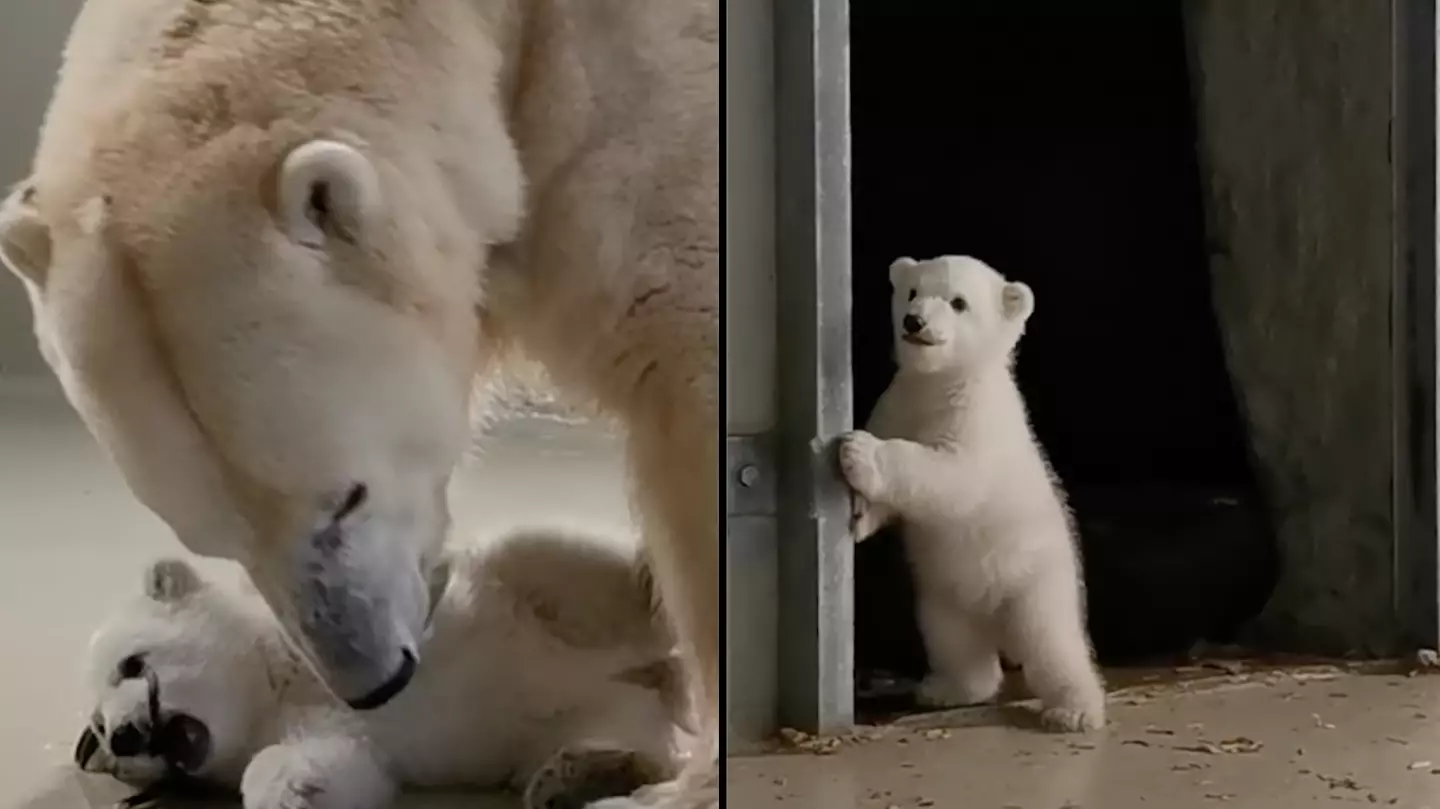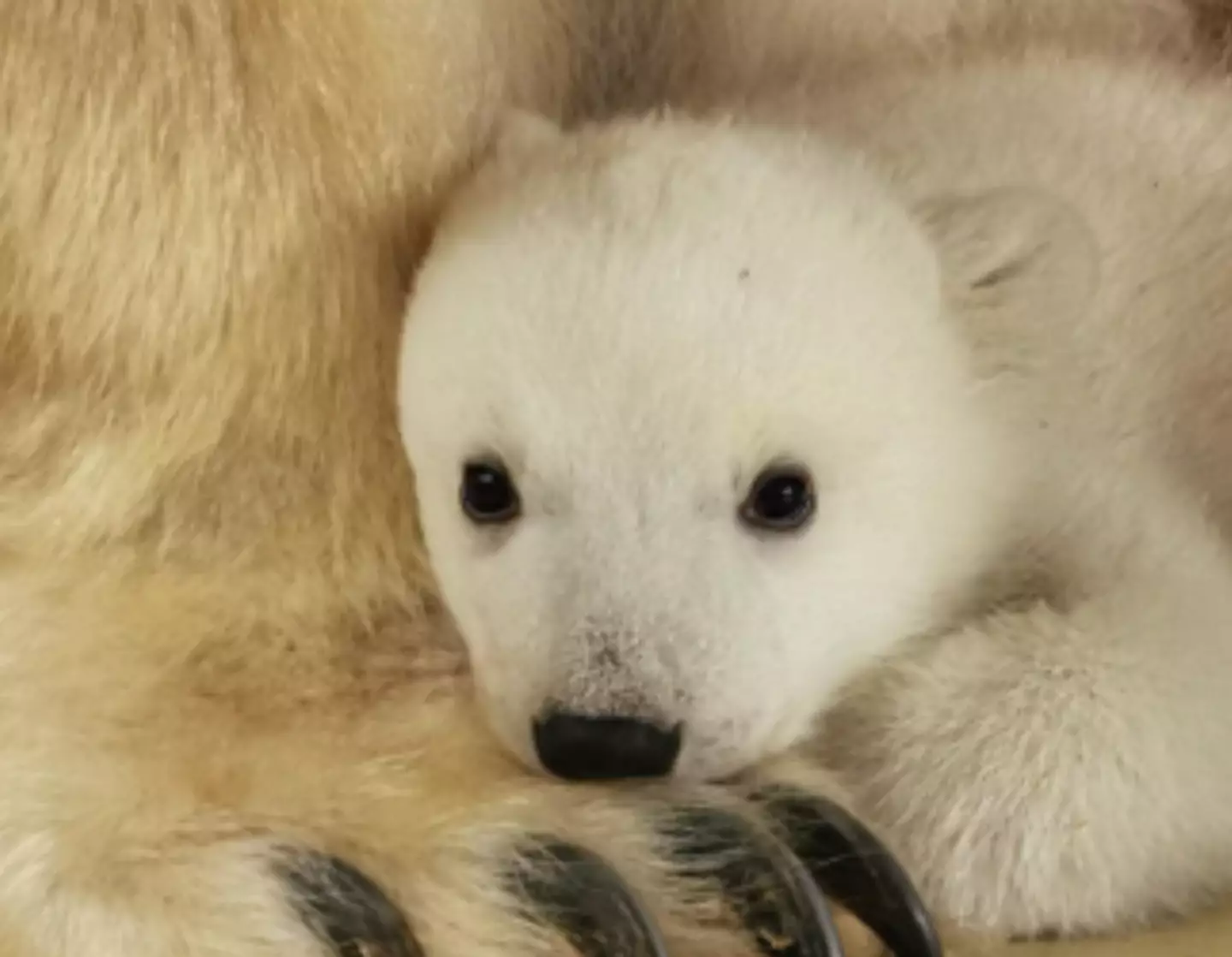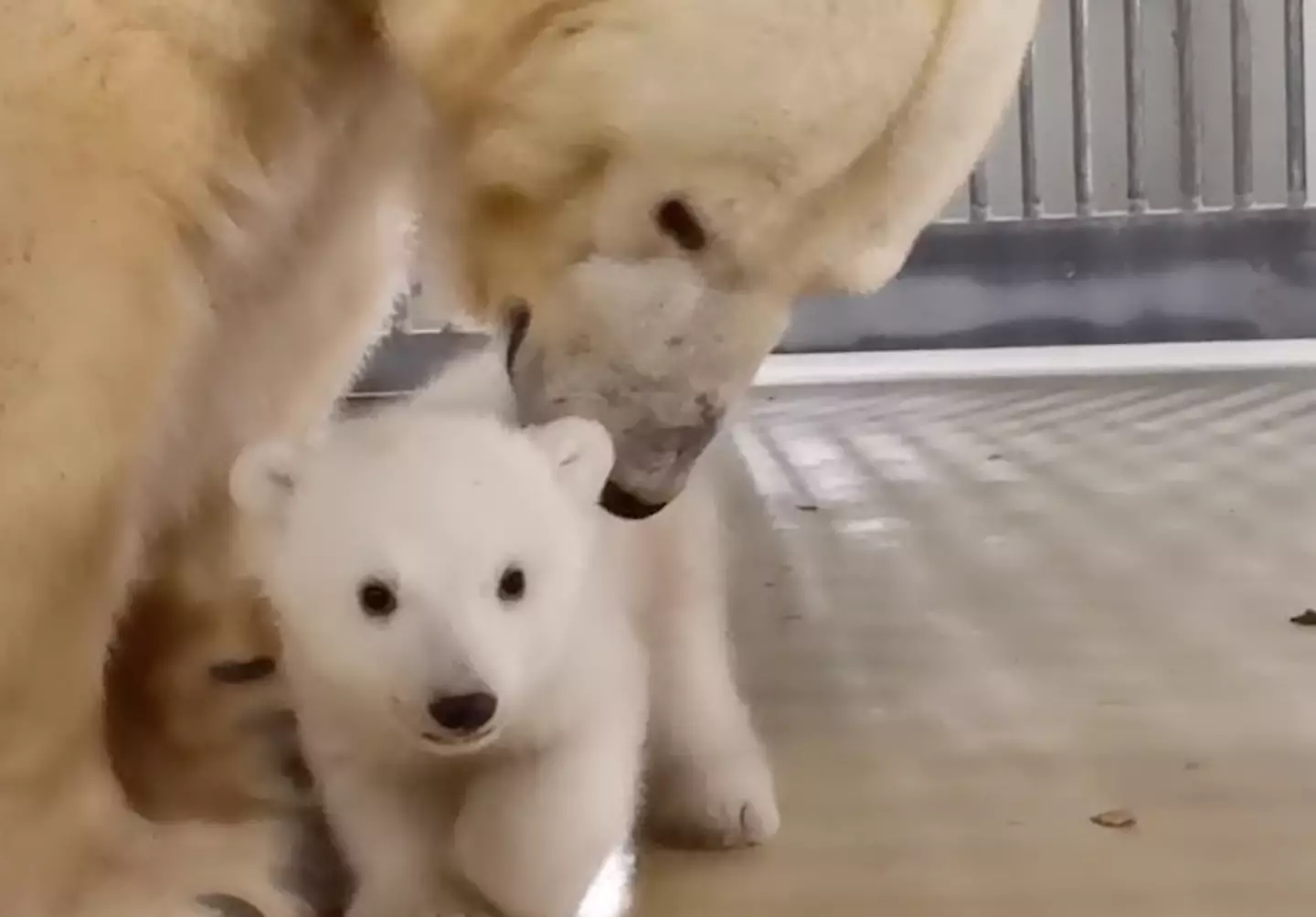
A German zoo has welcomed its first polar bear cub in 21 years.
ABC News reported that Tierpark Hagenbeck in Hamburg announced the birth of polar bear Victoria, calling it a ‘minor sensation’ as the zoo hasn’t seen a new addition to the species in almost two decades.
Victoria was born on December 19 and spent the first couple of months undisturbed under the protection of her den until staff ensured she was ‘healthy, lively and alert’.

Advert
Keepers and veterinarians kept a close eye on Victoria through a camera installed in the birthing den.
The first few months for polar bears are crucial as they are born partially blind and deaf, weighing around 900 grams.
Director Guido Westhoff said the birth was proof their breeding program had been effective.
While the zoo didn’t disclose when the public could pay a visit to the young cub, Tierpark Hagenbeck will set up a camera in the bear enclosure so that people can watch her remotely.
An adorable video shared by the zoo shows Victoria stumbling around while getting the hang of her new limbs.
Advert
The baby is seen crouched under her mother while pushing off her mama's paw to find her balance before taking several steps.
"I am very proud that we can now present to our visitors our absolute highlight this summer: a polar bear baby, alongside other special cubs, such as leopards, tigers and orangutans," managing director Dirk Albrech said.

The zoo also confirmed that the father would leave the facility to provide more space for the mother and her baby.
While polar bears aren’t classified as endangered, they are currently listed as vulnerable, with only 22,000 to 31,000 left in the world.
Advert
Terrestrial and marine denning habitats for polar bears are increasingly disappearing due to the threat of climate change and human and industrial influence.
Sea ice is essential to the species, and climate change is continuously melting and fragmenting the sea ice across the Arctics, forcing many impregnated females to make their dens on land.
However, long-term, this will severely impact polar bears and decrease the population.
“Every piece of evidence shows that polar bears are dependent on sea ice and if we don’t change the trajectory of sea ice decline, polar bears will ultimately disappear,” Dr Steven Amstrup said, as per The Guardian.
“They face the choice of coming on to land or floating off with the ice as it recedes, out to the deep ocean where there is little food.
Advert
"We will see more bears starving and more of them on land, where they will get into trouble by interacting with humans.”
Topics: News, Animals, World News